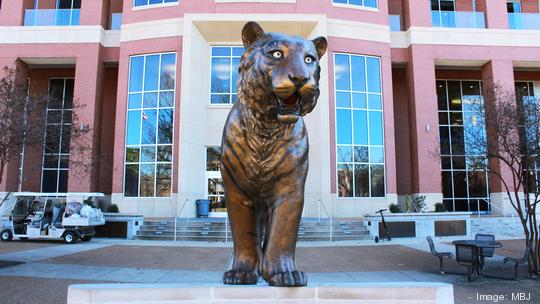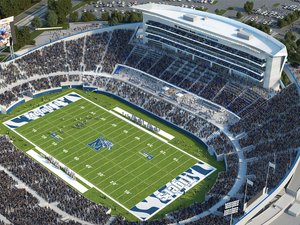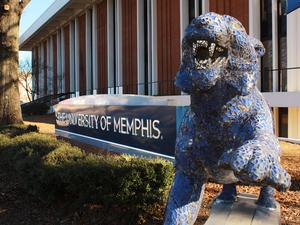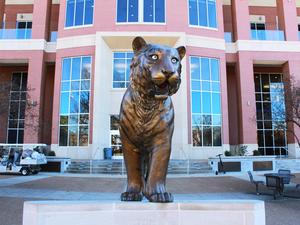
Why do birds fly in a V formation? And why are researchers looking into automating electric trucks to drive snuggly? The answers to those questions are the same: to reduce air resistance, preserving energy.
The University of Memphis is set to receive $1.5 million over five years from the National Science Foundation (NSF) and industry partners to investigate innovations in trucking, potentially such as truck platooning, or driving snuggly.
To do this, the U of M is partnering with Purdue University to establish the Center for Electrified and Automated Trucking (CEAT) as a bridge between government agencies, academia, and industry to find solutions for trucking, logistics, and potentially even public transportation.
CEAT's current research goals are broad: "to converge and apply knowledge in emerging technologies in connected, electrified, and automated commercial vehicles and logistics networks for efficient, safe, agile, and sustainable mobility," as stated in the center's research abstract.
However, CEAT does name some more specific potential research topics. Many are aimed at enabling electric trucking to travel long distances, like the aforementioned platooning, caravanning, durable fuel cells, and the efficient placement of charging stations. And other potential research looks at business problems, like labor shortages in logistics and adoption of electric and automated trucking.
"Our university-industry collaborative initiative supported by the NSF focuses on building a deep interdisciplinary pool of research expertise on campus for us to be national leaders in this space," Jasbir Dhaliwal, Ph.D, EVP for research and innovation at the U of M, said in an email.
Sabya Mishra, Ph.D., professor of civil engineering at the U of M, is leading the CEAT initiative, joined by U of M co-principal investigators: Mihalis Golias, Ph.D., professor of civil engineering; Hasan Ali, Ph.D., professor of electrical computer engineering; Myounggyu Won, Ph.D., professor of computer science; and Mehdi Amini, Ph.D., professor of supply chain and operations management.
Half of the $1.5 million is set to be provided by the NSF's Industry-University Cooperative Research Centers (IUCRC) Program. The remaining half of the funding comes from industry partners.
These industry partners include public companies like Amazon, FedEx, General Motors, AES Corp., Duke Energy, Allison Transmission, and Cummins; private companies and entities like IMC, HNTB, Start Co., Fr8relay, LHP Engineering Solutions, Multiscale Integrated Technology Solutions, and Dallara; government organizations like the Tennessee Department of Economic and Community Development, the Memphis Area Transit Authority, and the Indiana Department of Transportation; academic institutions like Applied Research Institute and the FedEx Institute of Technology.
"This NSF IUCRC award will be of great benefit not only for U of M faculty and students but also for the large logistics, freight, and transit sector in the greater Memphis area," Mishra said in an email.
There are over 80 IUCRCs across the country, with over 120 universities participating. CEAT will be the University of Memphis and West Tennessee's first center of its kind, according to IUCRC's award database. The only other centers are at the University of Tennessee at Knoxville and Vanderbilt University. Only two to eight full center awards are given annually, according to the IUCRC program's website.
IUCRCs are a blueprint for collaboration between academic researchers, industry, and the government. The program has three main objectives for these centers: research, maintain U.S. leadership in tech development, and create diverse, skilled workers.
In 2022, the University of Memphis received a $20,000 grant from the NSF's IUCRC program to plan the center.









